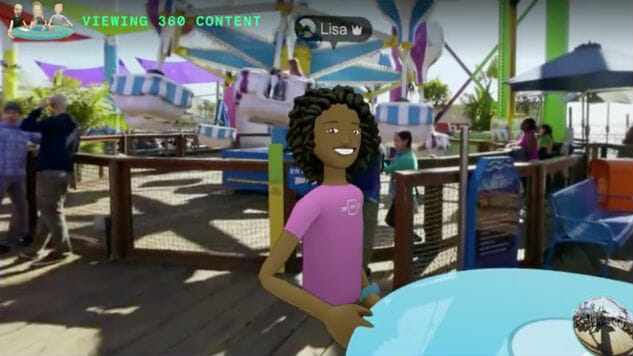Facebook Really Wants You to Hang Out With Your Friends in Virtual Reality, But Do You?

Facebook wants you to hang out with your friends more. Virtually speaking, that is.
You see, when Facebook acquired Oculus Rift for some $2 billion in change in 2014, it all seemed a bit strange. What is Facebook going to do with a virtual reality company? Evidently they did have some plans for it. Those plans were unveiled yesterday at day one of the the F8 conference when Facebook launched the beta version of their VR app, Facebook Spaces.
The premise is simple: Make virtual reality social.
Through the Oculus Rift headset, users can launch the Spaces app and connect the Facebook universe they’ve crafted through the years to a virtual space. Within that space, you exist as an avatar that can feign surprise, laugh, frown, and express confusion. You know, sort of like a real person.
The cartoon-ish avatars are created based on actual photos of yourself, with the ability to tweak them get it how you want. Social VR Product Manager Mike Booth said that your close friends should be able to recognize you, though ultimately how you look will be up to you. At the moment, no doubt the avatars are a bit on the goofy side and I imagine there’s a bit of a learning curve, but everything new has to start somewhere.
Currently, they are a poor representation of ourselves—kind of Facebook’s own version of Nintendo Miis. But hey, maybe that even takes some of the pressure off. No need to put on makeup or brush your hair, right? But if it’s realism that we’re after, with 3D scanners getting increasingly better, capturing a more accurate virtual avatar is more than possible.

-

-

-

-

-

-

-

-

-

-

-

-

-

-

-

-

-

-

-

-

-

-

-

-

-

-

-

-

-

-

-

-

-

-

-

-

-

-

-

-









































